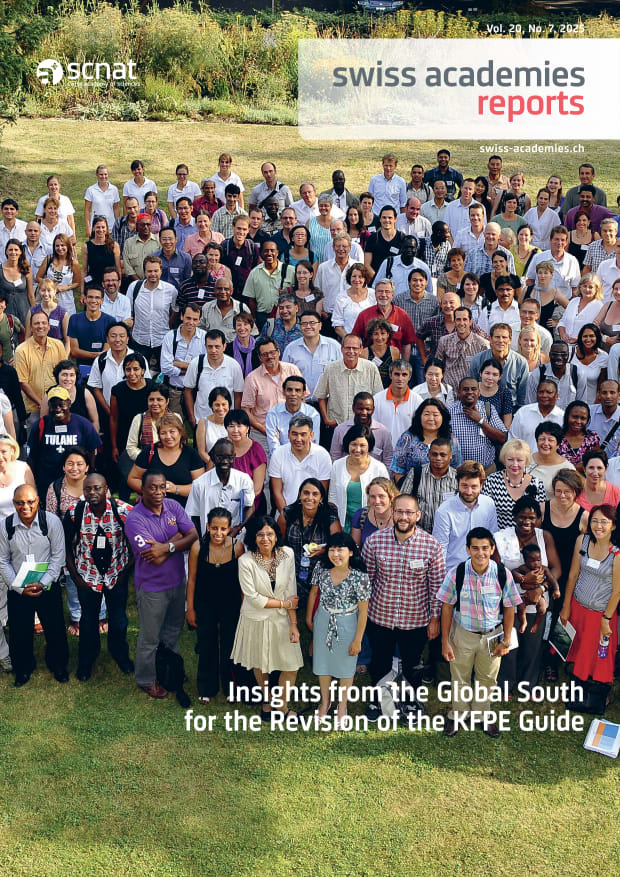Swiss Academies Series
Swiss Young Academy SYA
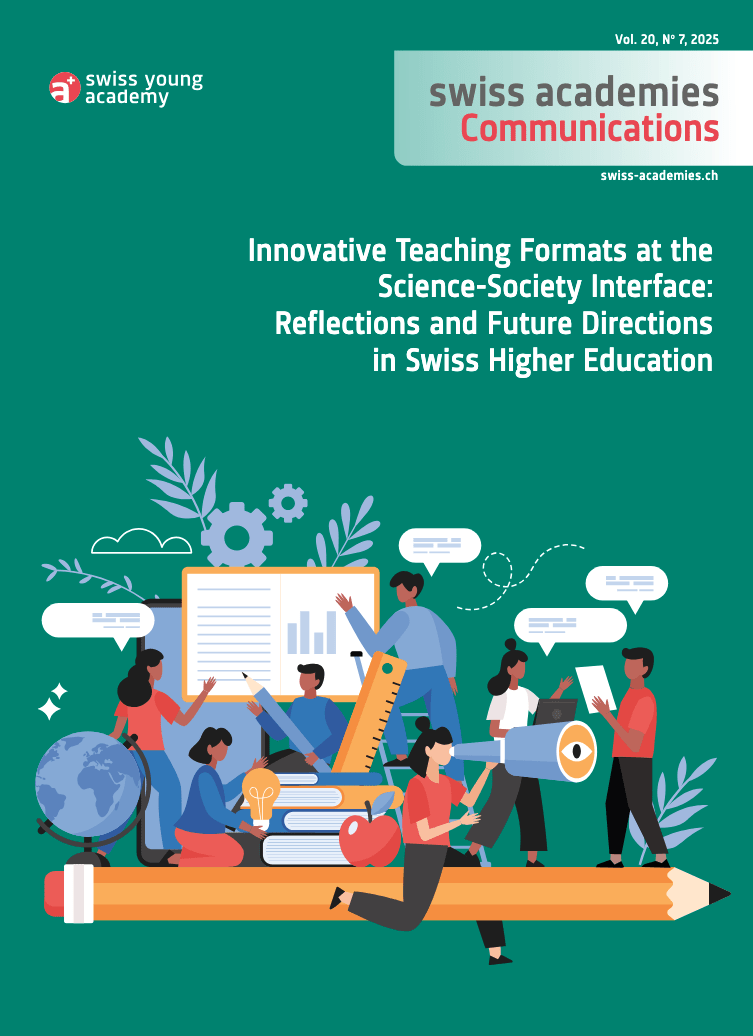
Innovative Teaching Formats at the Science-Society Interface: Reflections and Future Directions in Swiss Higher Education
Science-society dialogue is crucial for addressing pressing societal challenges. One important avenue for strengthening this link, in an inter- and transdisciplinary perspective, is teaching formats that encourage students to engage in the public sphere. However, an illustrative collection of best practices in Swiss higher education has been lacking so far. This practice-driven report draws on a non-exhaustive stocktake of existing courses in Switzerland and participatory workshops among lecturers. It features illustrative examples from Swiss higher education institutions and introduces a new typology of science-society teaching formats, offering educators a structured way to design and analyze courses across six dimensions. In addition, the publication discusses both the opportunities and challenges of implementing such teaching formats. To further advance science-society education, the report identifies three priority areas for action.
Swiss Academy of Sciences SCNAT
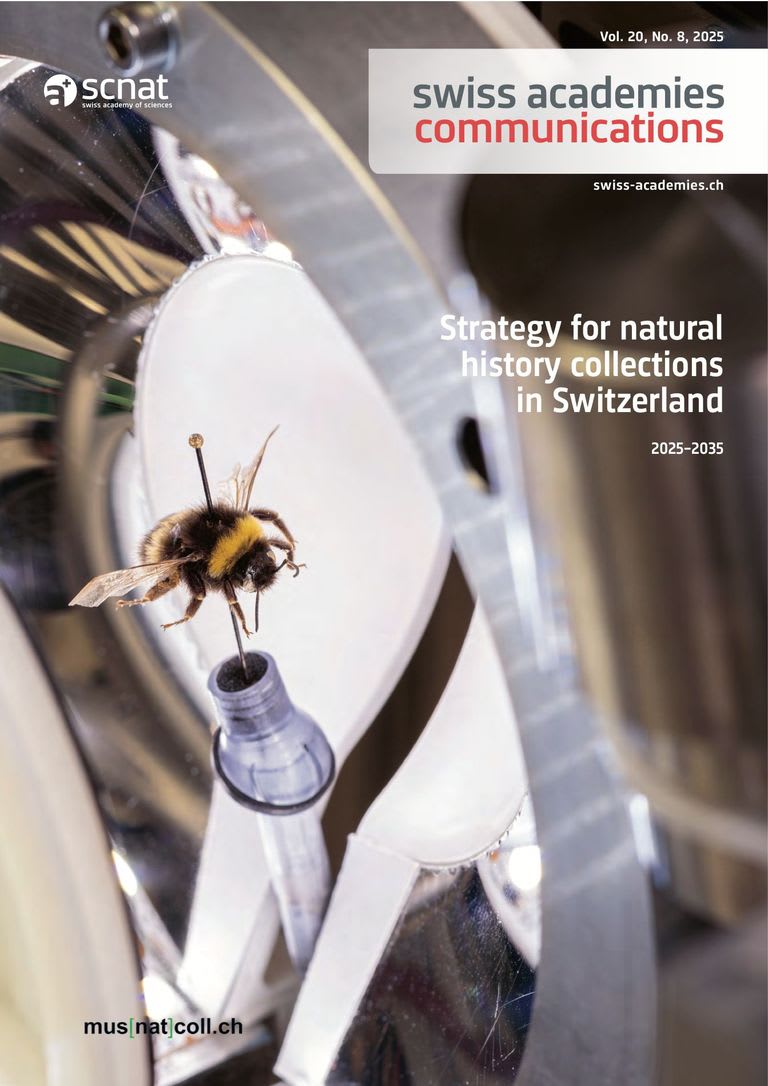
Strategy for natural history collections in Switzerland
Thirty-seven institutions, take a decisive step towards unlocking the full potential of natural history collections in Switzerland. Together, they publish and endorse a strategy based on 6 pillars and 52 key activities to better preserve collections, ensure their accessibility and promote their use for science and society.
Swiss Academies of Arts and Sciences a+
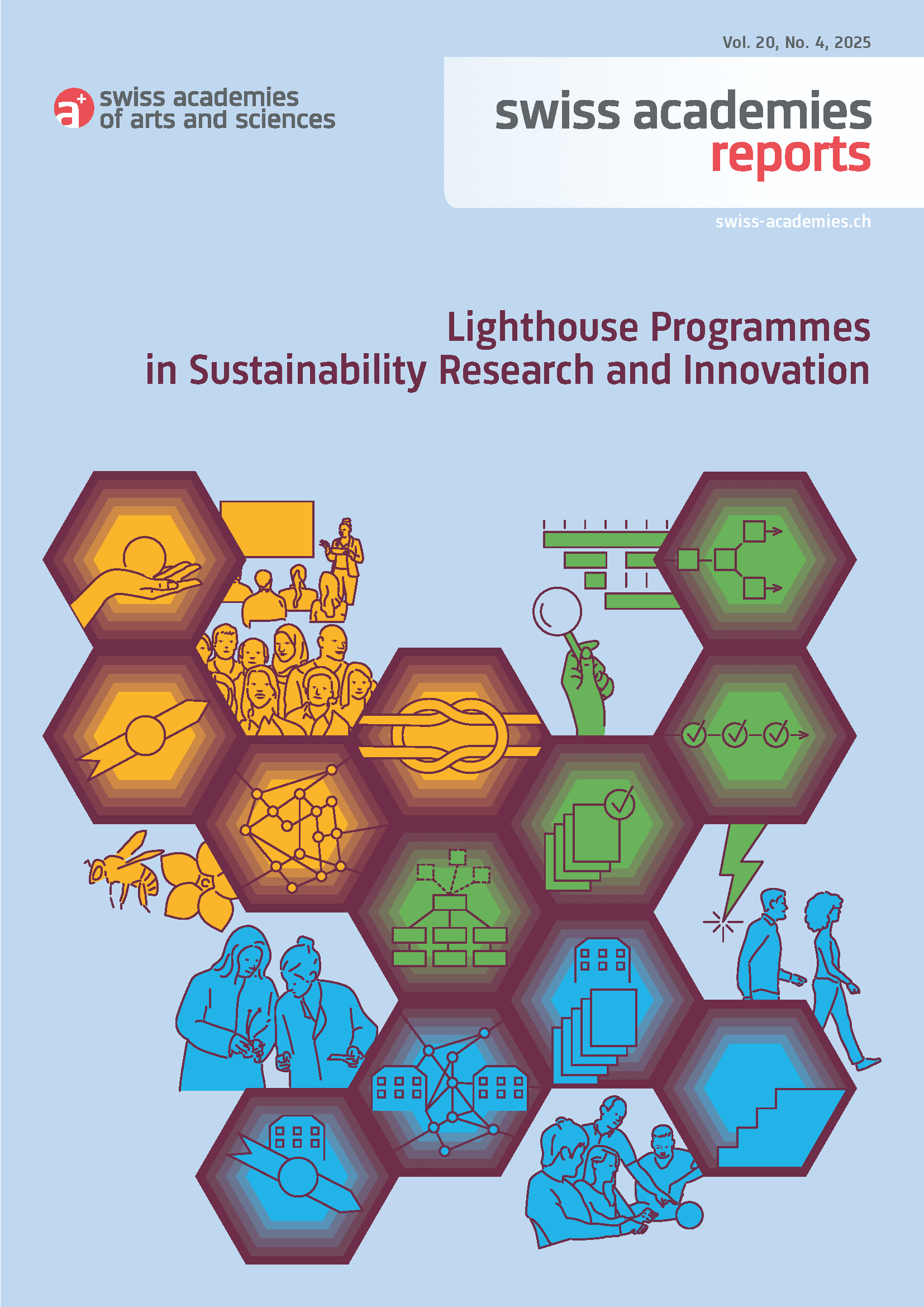
Lighthouse Programmes in Sustainability Research and Innovation
Wuelser G, Edwards P (2025)
Lighthouse Programmes in Sustainability Research and Innovation
Swiss Academies Reports 20 (4)Swiss Academies of Arts and Sciences a+

Ethical guidelines for animal experiments
The Swiss Animal Welfare Act permits the use of animals for certain scientific purposes; at the same time, however, it requires that the dignity of animals be respected and their welfare protected. For researchers, reconciling these various societal interests can be challenging. The ethical guidelines for animal experiments (2025) are designed to clarify the margin of discretion left by the legislation and to encourage researchers to reflect on the handling of animals in their experiments. The decisive factors for updating the previous version from 2005 were new scientific knowledge and research methods on the one hand, as well as changes in the legal framework on the other.
Swiss Academy of Sciences SCNAT
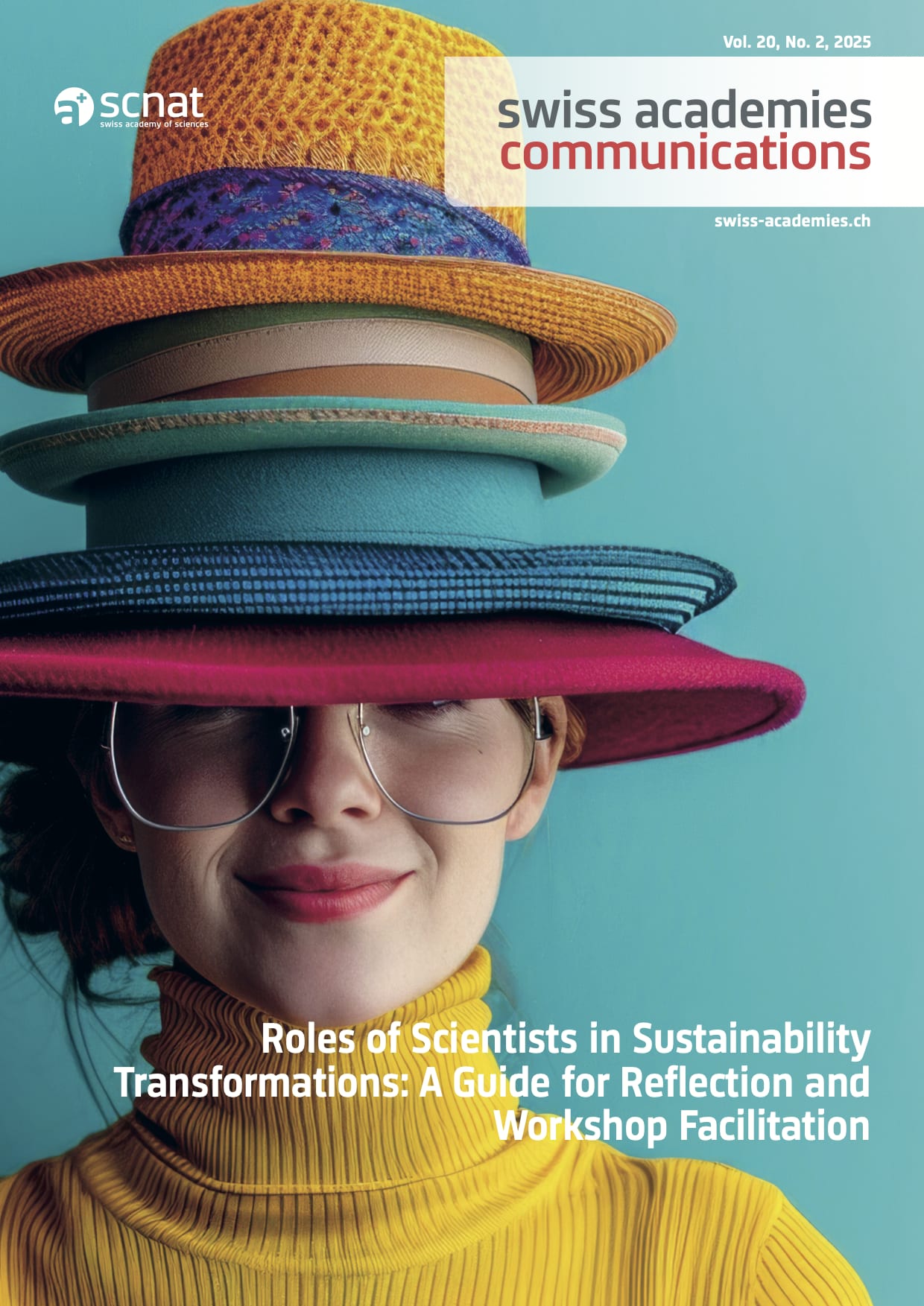
Roles of Scientists in Sustainability Transformations: A Guide for Reflection and Workshop Facilitation
Scientists, scientific experts, and knowledge brokers often find themselves in situations where they need to play new roles in society or are criticised for positioning themselves at the interface between science and other societal fields of action. The present guide aims to stimulate reflections on, and discussions of, various different roles that scientists perform.
Swiss Academy of Sciences SCNAT

Swiss Glaciers. State, projections and significance
The Swiss Alps are characterised by glaciers. Their retreat influences the landscape and tourism, harbours natural hazards, lowers the volume of water available in summer and even has an impact on the ocean. The extent to which the Alpine glaciers are retreating and whether they will eventually disappear depends on climate change and, consequently, global climate protection. The factsheet outlines the level of knowledge concerning glacial melting and its impact on society and, additionally, illustrates available options and courses of action.
Swiss Academy of Humanities and Social Sciences SAHS

All-day childcare and schooling
This report analyses the attitudes of parents in Switzerland regarding all-day childcare, based on data collected from an online panel of 2,161 parents. Providing high-quality childcare is essential for child development, equal educational opportunities, and increasing female participation in the workforce, all of which contribute to Switzerland’s economic sustainability. The analyses presented in this report are based on primary data covering various aspects of general parental attitudes towards all-day schooling, contrasted with specific views on the own family. They differentiated between German- and French-speaking parents to shed more light on potential regional differences.
Duchêne, Cédric, Marieke Heers and Laura Bernardi (2025): All-day childcare and schooling. A survey of parental attitudes in Switzerland, ed. by the Swiss Academy of Humanities and Social Sciences (Swiss Academies Reports 20,1).

